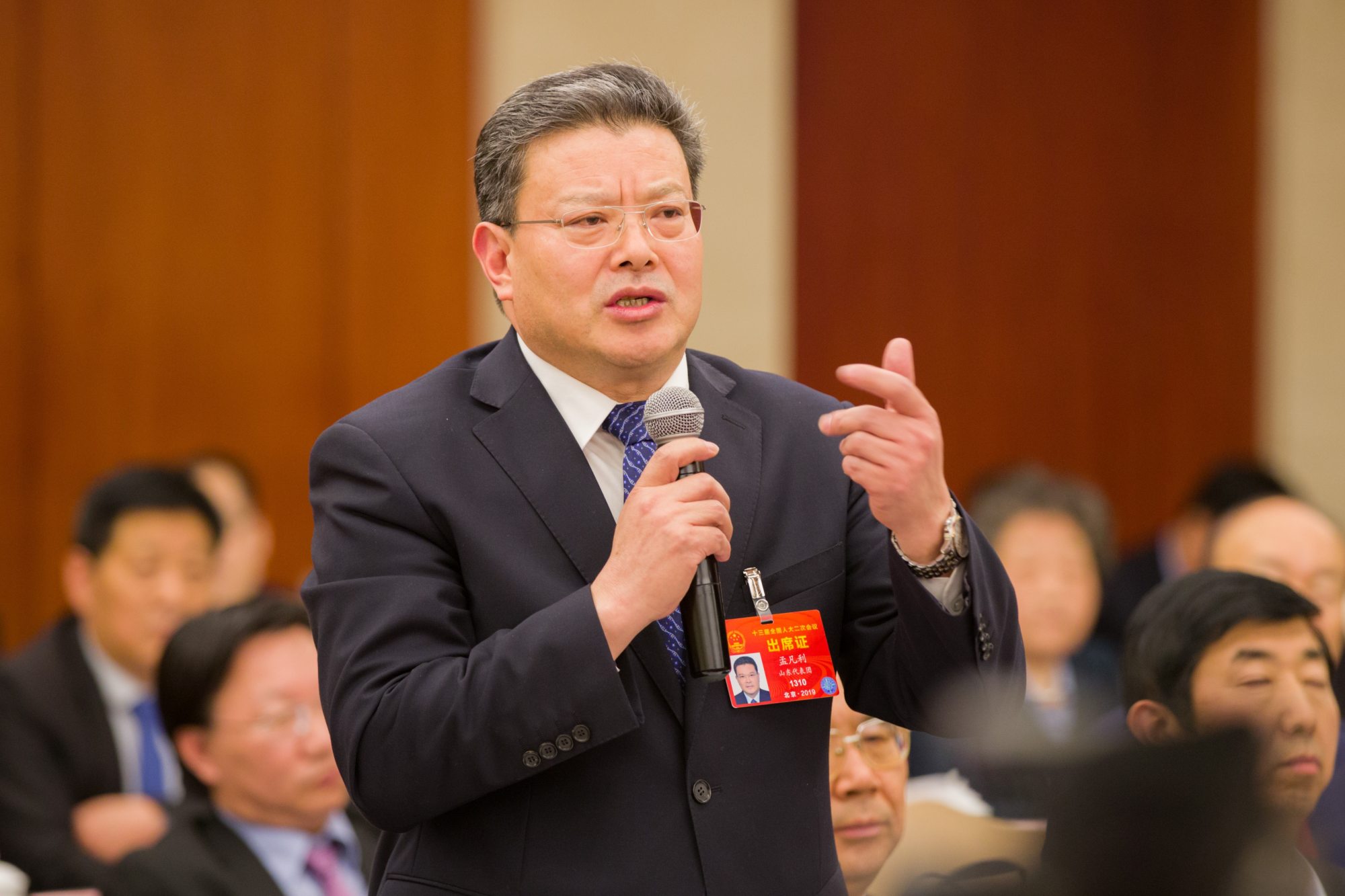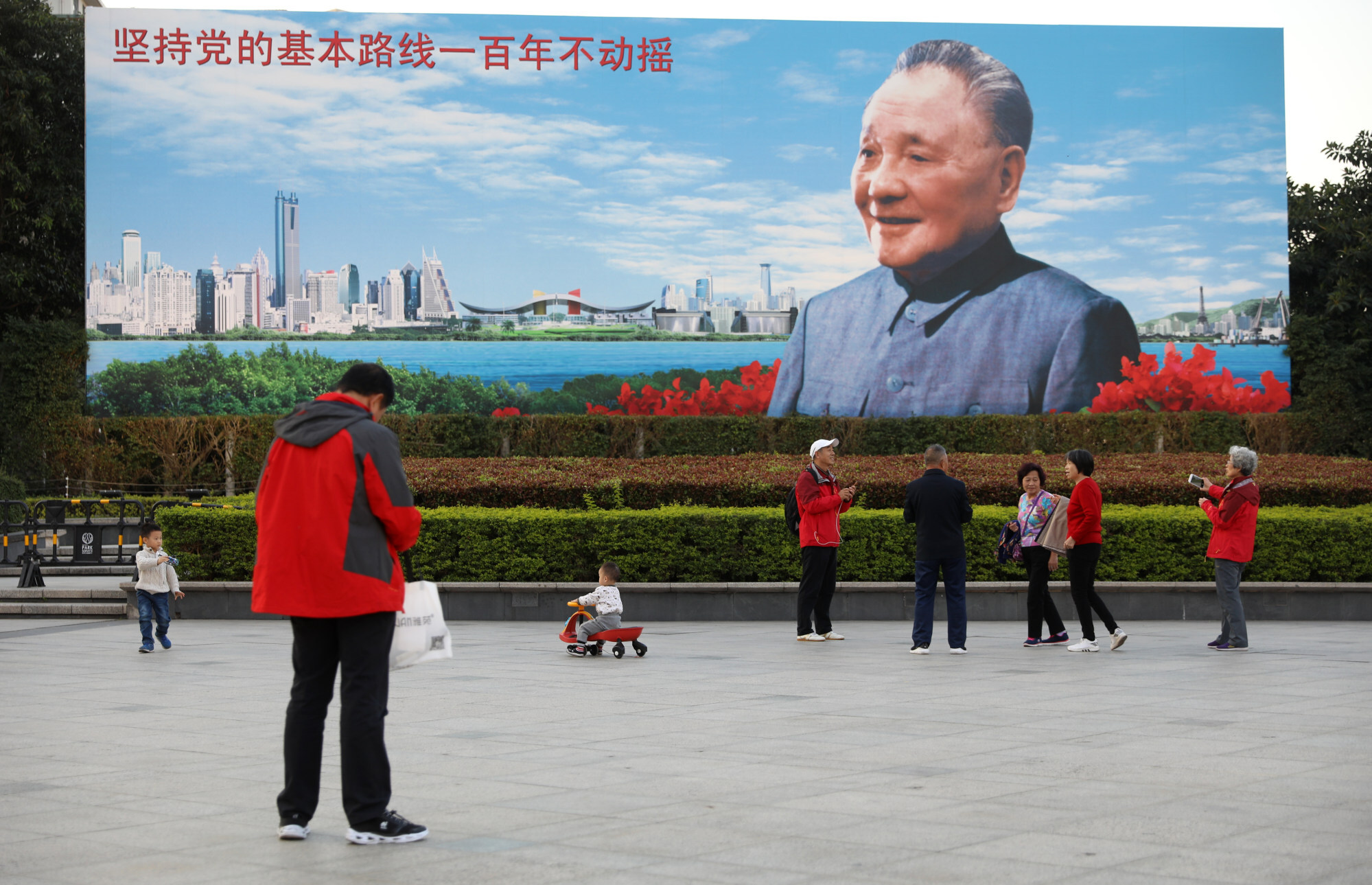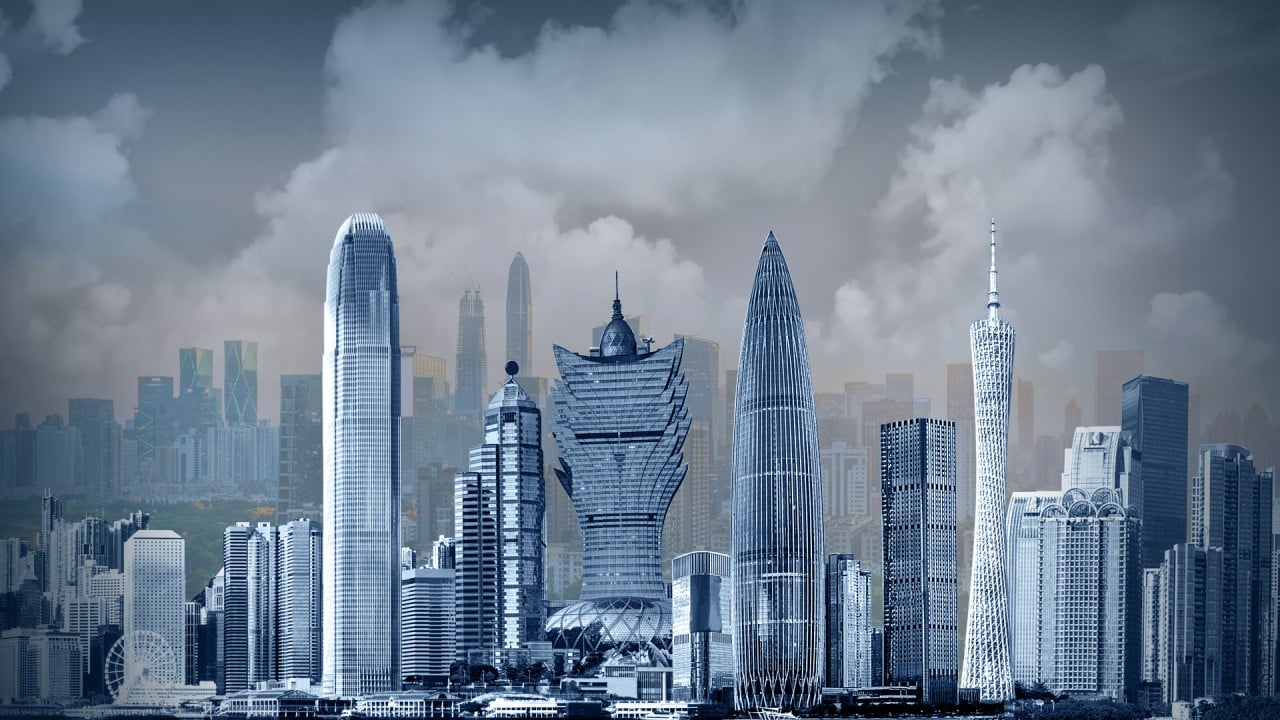
Beijing centralises power in the provinces ahead of Communist Party congress
- Guangdong reshuffle a case study in growing practice of appointing hand-picked outsiders to key provincial roles
- Analysts find the process has been speeding up at the same time the length of tenure is decreasing, with local issues taking a back seat
But Meng also made sure to be seen first and foremost as a loyalist to President Xi Jinping, who also visited Deng’s statue in the park two years ago to mark the 40th anniversary of the Shenzhen special economic zone.
“We must consistently align our ideology, politics and actions with the Party Central Committee with Comrade Xi Jinping at its core,” he said, according to media reports from Shenzhen, in southern China’s Guangdong province.

The 56-year-old, from Shandong province in the east, is the latest addition to Guangdong’s senior leadership, in a reshuffle that has seen an increasing number of outsiders parachuted in to key positions that once traditionally went to locals.
The shift towards promoting outsiders to provincial roles is not unique to Guangdong. Numerous studies measuring provincial leadership rotations show an intensifying trend towards centralisation of power.
Meng, former party boss in Baotou, in the landlocked Inner Mongolia region, is widely seen as a rising star, on a similar career path to his predecessors in Shenzhen and as deputy provincial party chief. Ma Xingrui and Wang Weizhong were both also appointed from outside Guangdong.
Ma was Guangdong’s first non-local governor until his promotion in December to Xinjiang party secretary, when Wang stepped up as acting governor, paving the way for Meng’s appointment as the third most powerful man in Guangdong.
Another senior official transfers to Xinjiang ahead of party congress
Observers say the Guangdong reshuffle serves as a prime example of the marginalisation of its historically powerful political elites as Beijing tightens its control ahead of the 20th Communist Party national congress, slated for the autumn.
Guangdong’s importance can be traced to Ye Jianying, one of the 10 founding marshals of the People’s Republic, and his two sons. Together they wielded enormous political and economic influence in Beijing and the military from their Guangdong power base.
Ye Xuanping, the eldest son, served as governor and remained an influential figure in the affairs of the province and its neighbouring cities of Hong Kong and Macau for two decades, from the late 1970s.

Political scientist Victor Shih, an associate professor at the University of California San Diego’s School of Global Policy and Strategy, said an outsider could break up local power dominance in the well-resourced province and impose the central government’s preferences.
“This has worked well for the central government since the late 1990s,” Shih said.
Until Ma’s appointment, it had been a tradition to appoint a local as governor, while bringing in an outsider hand-picked by Beijing for the role of provincial party boss, according to Bo Zhiyue, a leading expert on Chinese elite politics.
“This has been the case for Guangdong until the arrival of Ma Xingrui, who became the first outsider to serve as governor and the practice was followed by Wang Weizhong’s appointment,” he said.
China’s propaganda machine embraces a new slogan to entrench Xi’s status
Similar patterns can be seen in Guangdong’s provincial capital. For three decades until 2014, all of Guangzhou’s party secretaries were either locals or had served extensively in the region.
That changed when Ren Xuefeng, a Hebei native from northern China, was appointed. His successors Zhang Shuofu, originally from Hunan, and Lin Keqing from Hubei, were also parachuted into Guangzhou.
According to Zhang Dong, assistant professor of Hong Kong University of Science and Technology’s division of social science, the central leadership sent loyalists into key positions in Guangdong and Shenzhen “to allow them to accumulate political capital for future promotion”.
“[Having] the top leadership’s trust is the most important factor in the appointment,” he said.
Rana Mitter, a professor of history and modern Chinese politics at the University of Oxford, said the Cantonese language skills and ties to local networks of Guangdong natives had enabled Beijing to get the most out of the entrepreneurial province.
“But the direction of travel has changed. Now there is much more emphasis on ideological conformity and homogeneity across China. Local languages such as Cantonese and Mongolian are being downgraded in favour of standardised Mandarin and that homogenisation applies to politics too,” he said.
“There is much less stress on being politically attuned to local cultures, and much more interest in having technocratic, savvy leaders who can move from role to role without much friction and who are able to give the impression that China is more equal but also less diverse than it once appeared.”
Guangzhou-based tech firms join forces in new metaverse alliance
According to Li Tao, associate professor of government and public administration at the University of Macau, Beijing’s deepening political control of provincial offices suggests a shift in focus from economics to politics.
“Political localism will shrink across China. Guangdong, which used to be a province with relatively few outsiders, is feeling the impact of centralisation much stronger than other provinces,” he said.
Li’s analysis of previous party congress elections found the rotation of provincial officials has been rising since the 1980s. He looked at the proportion of outsiders – defined as leaders who had spent less than five years in the province where they were appointed – and found a single digit percentage in 1987.
According to Li’s study, which included provincial committees and standing committees, the proportion of outside appointments had reached almost 30 per cent by 2017.
He found the officials also served shorter tenures while rotation frequencies increased, pointing to political centralisation with less emphasis on localism, local expertise and the economy.

Cheng Li, director of Brookings Institution’s John L. Thornton China Centre, has also noted an extensive reshuffling across provincial party committees.
“The rapid circulation – and resulting short tenure – of provincial chiefs in the year leading up to the 20th party congress has truly been unprecedented,” he wrote, in an article published in late March.
Cheng Li’s research has also found a significant drop in the average tenure of provincial chiefs in China’s 31 administrations, between 1985 and 2021.
The decrease is most noticeable among provincial party secretaries, whose average tenure fell from 4.5 years in 1985 to just 1.6 years in 2021. Tenures for governors and mayors fell from an average of 2.5 years to 0.8 years, he said.
According to Cheng Li, the change was most rapid in 2013 and 2016 during Xi’s sweeping anti-corruption campaign that saw the toppling of a number of political heavyweights, including Zhou Yongkang, Bo Xilai and Ling Jihua.
How is China’s Communist Party structured?
After the last party congress in 2017, a wave of mostly Xi confidants and loyalists have been rotated to senior leadership positions in the country’s most important cities and provinces.
For Shih, Guangdong locals will probably continue to make up a share of the party’s elites, while a tenure in the province could also serve as a blessing for others.
“Some experience in Guangdong provides a future leader with experience in managing a complex, globalised economy and interaction with some of the leading private entrepreneurs and the biggest foreign investors in China,” he said.
“I think experiencing governing in Guangdong is still a plus for national leaders as we are seeing with Ma Xingrui and He Lifeng,” he said, referring to the new Xinjiang party boss and head of the powerful National Development and Reform Commission, respectively.


